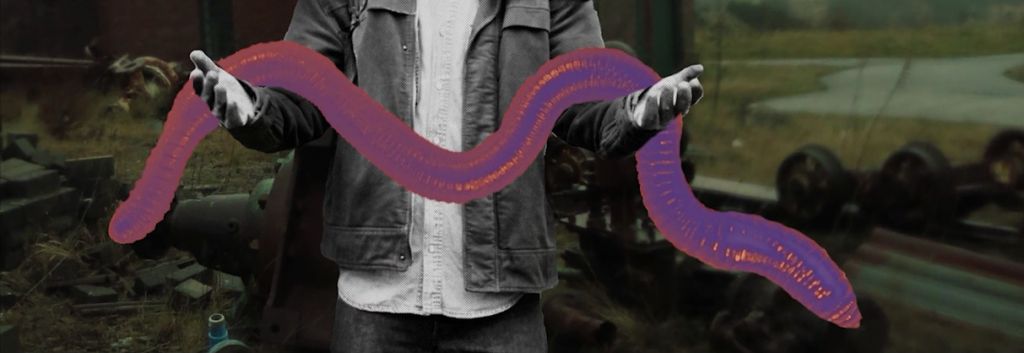A team of students from Central Saint Martins, London, has won this year’s biodesign challenge with a project in which worms turn into tech factories.
Every year, teams working at the intersection of biology and design compete to win the Biodesign Challenge held at the famous New York City’s Museum of Modern Art (MoMA). This year’s edition was won by a team of two students from Central Saint Martins, in London, that imagined a future when earthworms are used to eliminate contamination from mining sites and turn it into a valuable product, quantum dots.
A quantum dot is a nanoparticle that can emit light of different colors when excited by light or electricity. They are used in medical imaging, LED screens and solar panels, and the market is expected to reach $11Bn (€9.6Bn) by 2026.
The students present a method developed at King’s College London to produce these quantum dots using worms, making the process cheaper and more sustainable. They imagine a future where a company called Quantworm Industries has created a giant worm breed that can produce high yields of quantum dots.
It might be a long time until such a technology becomes a reality, but the goal of biodesign is precisely to anticipate what’s coming. Design is an essential step to the development of new products that determines how they are used. As technology advances, at an incredibly fast pace in the case of biology, designers need to be ready when a new technology hits the market and understand the science behind it to make useful applications.
The runner-up team, from the University of Edinburgh, presented a project indagating into the socio-political implications of biotech. The team imagines a future in 2029 when the UK is no longer part of the EU and Scotland and Ireland are independent. As a consequence of the political shifts and an attempt to accelerate innovation, the testing, commercialization and release of genetically modified organisms is largely deregulated in the so-called United Kingdom of England and Wales (UKEW).
A third award went to New York University, whose team presented Beecosystem, a project to connect brewing and beekeeping where bees contribute to the fermentation of beer while being protected from parasites by beta acids produced as a byproduct of the yeast’s fermentation.
Watching these projects sure is fun, but it’s also a great way to get our imagination going and start preparing for a future that will soon bring many challenges as well as unlimited possibilities to improve and redefine our lives.
Images and video via Biodesign Challenge





